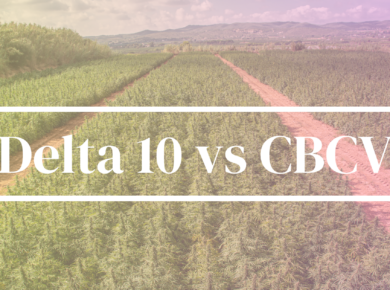Cannabinol (CBN) and Tetrahydrocannabinolic Acid (THCa) emerge from the vast world of cannabinoids, each presenting unique chemical structures, origins, and effects derived from hemp and cannabis plants.
CBN, renowned for its mild psychoactive tendencies typically associated with sleep, originates from the degradation of THC, predominantly found in aged cannabis. It is celebrated for its potential sedative effects, although further research is pivotal to fully elucidate its properties.
In contrast, THCa, thrives in raw and live cannabis, serving as the acidic precursor to THC. When subjected to heat—through a process known as decarboxylation—THCa transforms into THC.
While both fall under the cannabinoid category, CBN and THCa diverge in their chemical make-up, origin, and consequent effects. CBN, emerging from THC decomposition, potentially harbors sedative qualities. In contrast, THCa stands as a non-psychoactive precursor to THC, remaining inert unless heated.
Many States allow hemp derived cannabinoids under the 2018 Farm Bill as long as they contain less than .3% D9 THC. Some States have explicitly banned cannabinoids like Delta 8, so check your local rules and regulations before purchasing.
Here’s the rules for Kush.com and more details
Frequently Asked Questions (FAQs)
- What Are CBN and THCa?
- CBN, Cannabinol, is typically formed when THC ages, frequently encountered in mature cannabis. Although less prevalent in fresh cannabis, its effects can amplify as the plant ages.
- THCa, Tetrahydrocannabinolic Acid, a non-psychoactive cannabinoid, resides in raw and live cannabis. During the plant’s drying phase or when exposed to heat (decarboxylation), THCa gradually converts to THC.
- How Are CBN and THCa Formed in the Cannabis Plant?
- CBN manifests in the cannabis plant as THC degrades through oxidation, rather than being directly synthesized by the plant.
- In contrast, THCa is a prominent constituent in raw cannabis, converting to THC either as it dries or upon exposure to heat.
- What Effects Do CBN and THCa Produce?
- CBN may elicit a sedative effect, particularly when amalgamated with THC, although it does not inherently possess psychoactive properties.
- THCa, conversely, does not induce a high. When decarboxylated, or exposed to heat, it morphs into the psychoactive THC.
- Are CBN and THCa Utilized in Hemp Products?
- Indeed, CBN and THCa may be incorporated into full-spectrum hemp products. However, the concentrations of these compounds can fluctuate, influenced by the age and storage conditions of the hemp.
- How Can I Ingest CBN and THCa?
- Various consumption methods, including smoking, vaping, tinctures, and edibles, allow for the intake of CBN and THCa. However, the consumption method can influence the compound’s effects, e.g., THCa converts to THC when heated during smoking or cooking.
Medical Disclaimer
The provided information is purely educational and should not replace professional medical advice. Always consult your healthcare provider before utilizing CBN or THCa products.
Where to Purchase
CBN and THCa products can be procured both online and in certain physical stores, ensuring compliance with local laws during any purchase.
Shop





